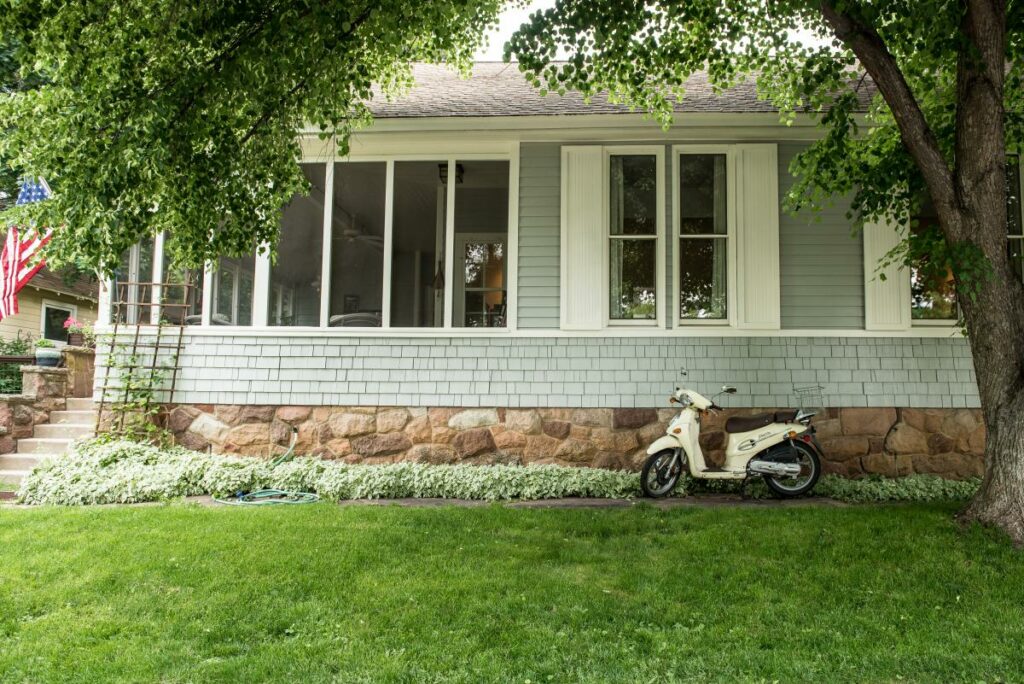Top 10 Neighborhoods to Consider When Buying a Home in Boulder Colorado
Boulder, Colorado has continuously been ranked as one of the top 10 places to live¹ for good reason. With its picturesque mountains, active outdoor lifestyle, and progressive culture, it’s no wonder why people from all over the world choose to call call it home. If you’re looking to relocate to Boulder, you might be wondering where to even start. In this post, we’ll explore the top 10 neighborhoods to consider when buying a home in Boulder.

Photo by University Hill Neighborhood Association
University Hill aka “The Hill”
University Hill is a popular neighborhood for students and young professionals. The Hill has a rich history dating back to the late 19th century. Located just northwest of the University of Colorado Boulder campus, the area was originally developed as a residential neighborhood for faculty and staff of the university. In the early 20th century, the district began to transform into a commercial hub, with the construction of several restaurants, shops, and entertainment venues. Today, this eclectic neighborhood is known for its vibrant mix of businesses and cultural attractions, including the Colorado Chautauqua, a National Historic Landmark. Homes in this area tend to be on the smaller side and are often rented out to students, but there are also some larger homes and apartments available for purchase.

Mapleton Hill Home Photo by Boulder Colorado
Mapleton Hill
Mapleton Hill is a historic neighborhood located just north of downtown Boulder. This neighborhood is known for its beautiful Victorian homes and tree-lined streets. It’s a great location for those who want to be close to the action of downtown Boulder but still have a quiet and peaceful place to call home as there aren’t many commercial buildings in the neighborhood, however homes are within walking distance to Pearl Street Mall and downtown Boulder. Homes in this area tend to be on the larger side and often come with a higher price tag.

Martin Acres Neighborhood photo by Martin Acres Neighborhood Association
Martin Acres
Martin Acres is a popular neighborhood for families and young professionals. It’s located just south of the University of Colorado campus and is close to several parks, including Tantra Park and Martin Park. Built in the 1950s, homes in this area tend to be on the smaller side and are often more affordable than other areas of Boulder. It’s a great option for those looking for a more affordable home in a central location.

Newlands Neighborhood Home photo by Newlands Neighborhood Boulder Facebook Page
Newlands
Newlands is a highly sought-after neighborhood located just north of downtown Boulder. This neighborhood was originally developed in 1871 by the Newland family. It started as a large orchard and as time went on, was divided up for sale. Many lots in the Newlands neighborhood still bear the apple trees that the Newland family planted many years ago. This family-friendly neighborhood sits at the base of Mount Sanitas and is known for its large lots and beautiful homes, many of which have views of the mountains. It is near the Red Rock Trail system, a popular spot for hiking and mountain biking. It’s also known for expansive North Boulder Park, with picnic areas, a playground, and sports fields. It’s a great location for those who want to be close to the action of downtown but still have a quiet and peaceful place to call home. Homes in this area tend to be on the larger side and come with a higher price tag.

South Boulder photo by Your Boulder
South Boulder
South Boulder, or “SoBo,” is a popular neighborhood for families and those who enjoy outdoor activities with an emphasis on dog friendly living. It’s located just south of downtown Boulder and is close to several parks, including South Boulder Creek Trail and Shanahan Ridge. This neighborhood is also home to the South Boulder Recreation Center, which offers a variety of activities for all ages. South Boulder experienced significant expansion throughout the 1950s, 60s, and 70s, and boasts convenient access to Highway 36, Golden, and Denver. The area showcases diverse home styles, ranging from cozy ranch homes and bi-levels to grand, luxurious custom homes.
 Boulder Country Club photo by Boulder Country Club
Boulder Country Club photo by Boulder Country Club
Boulder Country Club
Boulder Country Club is a private luxury community located just east of Boulder. It’s a great location for those who are looking for a lifestyle, not just a place to live. Here you can enjoy golfing, tennis, a pool and other country club activities. Homes in this area tend to be on the larger side, with a high price point. It’s a great option for those who want a private and exclusive community to call home.
 Table Mesa Shopping Center photo by Boulder Colorado
Table Mesa Shopping Center photo by Boulder Colorado
Table Mesa
Table Mesa is a popular neighborhood for families and young professionals. It sits to the west of Martin Acres and just south of the University of Colorado campus and is close to several parks, including South Boulder Creek Trail and Viele Lake. Table Mesa is known for being home to the National Center for Atmospheric Research and its hands-on weather and climate exhibits. It also offers spectacular views of the Flatirons and Eldorado Canyon along its Mesa Trail. This neighborhood is also home to the Table Mesa Shopping Center, which offers a variety of shops and restaurants.
 Wonderland Lake Trail Photo by Phil Yates/Boulder, Colorado
Wonderland Lake Trail Photo by Phil Yates/Boulder, Colorado
North Boulder
North Boulder is a popular neighborhood for families and young professionals. It’s located just north of downtown Boulder and is close to several parks, including North Boulder Park and Howard Hueston Park. This neighborhood is also home to the North Boulder Recreation Center, which offers a variety of activities for all ages. Formerly an industrial zone, NoBo is rapidly transforming into a trendy gathering spot for young families, artists, and emerging enterprises, spanning from breweries and wineries to purveyors of handcrafted goods. The area’s exponential growth has resulted in a plethora of excellent dining options, as well as the opportunity to witness Boulder’s rising artists in action.
 Photo of the Chautauqua neighborhood by Boulder Colorado USA
Photo of the Chautauqua neighborhood by Boulder Colorado USA
Lower Chautauqua
Lower Chautauqua is a highly sought-after neighborhood located just south of downtown Boulder. It’s difficult to surpass the natural splendor of the Chautauqua Neighborhood. This area abounds with picturesque and distinct homes, showcasing an amalgamation of both contemporary and traditional designs. As one of the earliest established neighborhoods in Boulder, it exudes charm and character. Inhabitants of this neighborhood are privileged to enjoy breathtaking vistas of the iconic Boulder Flatirons. The close proximity to Chautauqua Park provides boundless opportunities for hiking and exploring nature. Additionally, the neighborhood offers an array of indoor activities such as local music concerts and delectable brunch spots. The convenient location provides quick access to downtown and South Boulder, enabling residents to experience the best of what Boulder has to offer.
 Photo of Twin Lakes Trail Head by Boulder County, Colorado
Photo of Twin Lakes Trail Head by Boulder County, Colorado
Gunbarrel
Gunbarrel is a popular neighborhood for families and young professionals. It’s located just northeast of Boulder and is close to several parks, including Coot Lake and Boulder Reservoir. This neighborhood is also home to the Gunbarrel Shopping Center, which offers a variety of shops and restaurants and has an exploding brewery scene.
When considering which neighborhood to buy a home in, it’s important to think about your lifestyle and what’s important to you. Do you want to be close to downtown Boulder? Do you enjoy outdoor activities? Are you looking for a private and exclusive community? By answering these questions, you can narrow down your search and find the neighborhood that’s right for you.
Boulder, Colorado has many great neighborhoods to choose from when looking to buy a home. Whether you’re a student, young professional, family, or retiree, there’s a neighborhood that’s perfect for you. By considering your lifestyle and working with a reputable real estate agent like John Farley, you can find the home of your dreams in one of Boulder’s top neighborhoods. Connect with John and his wife Karen if you have any questions about the top neighborhoods in Boulder Colorado!




